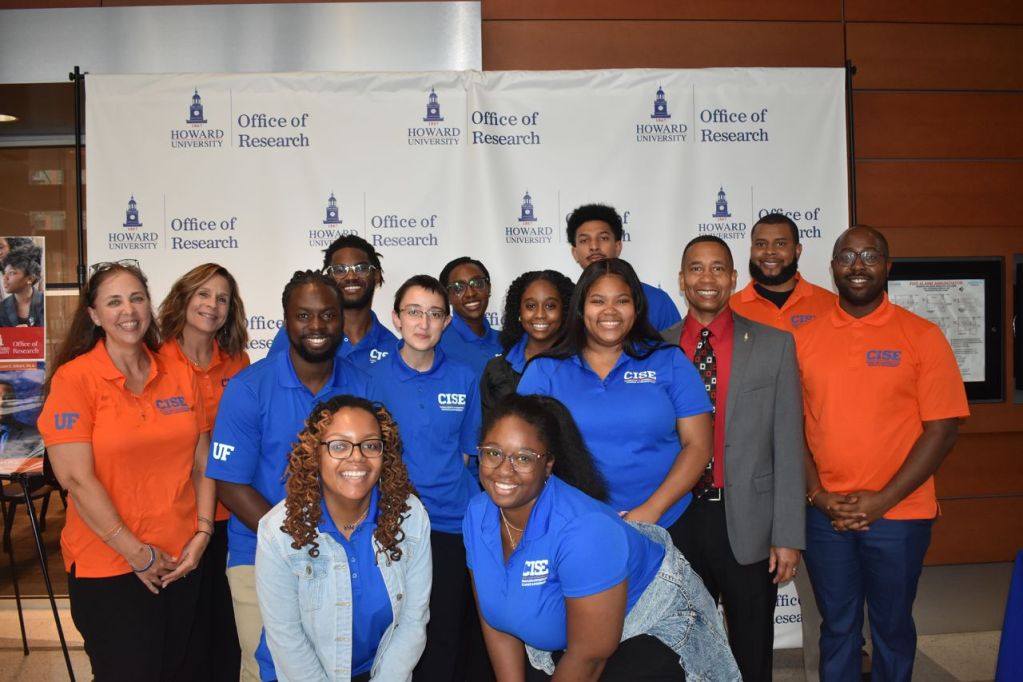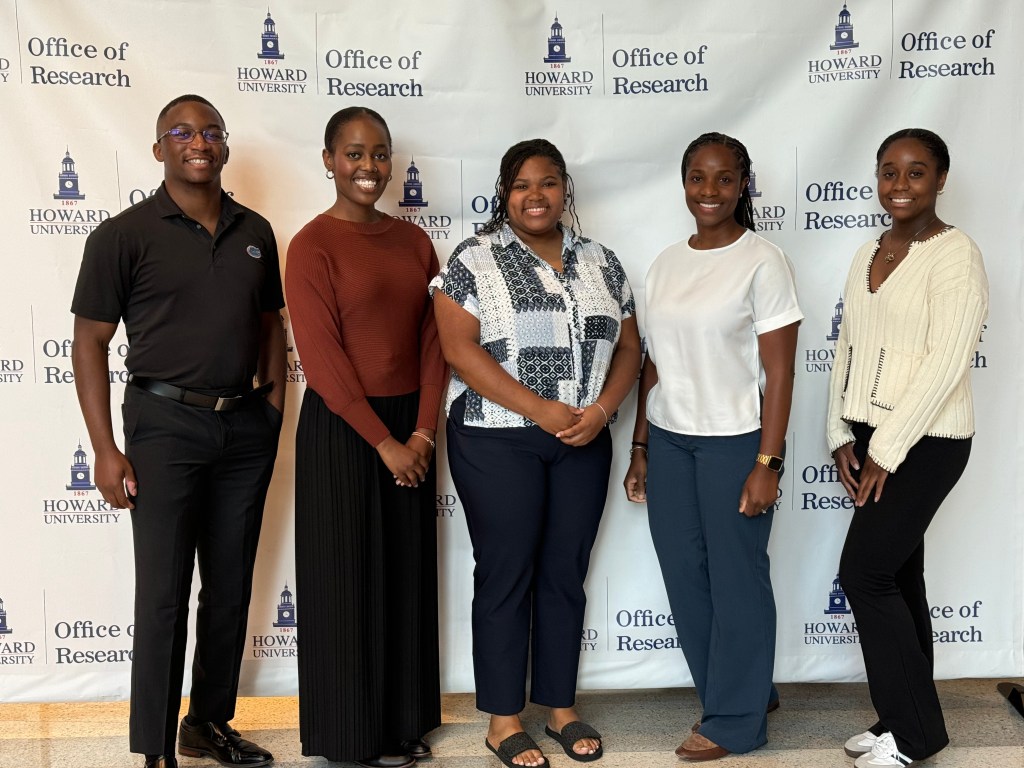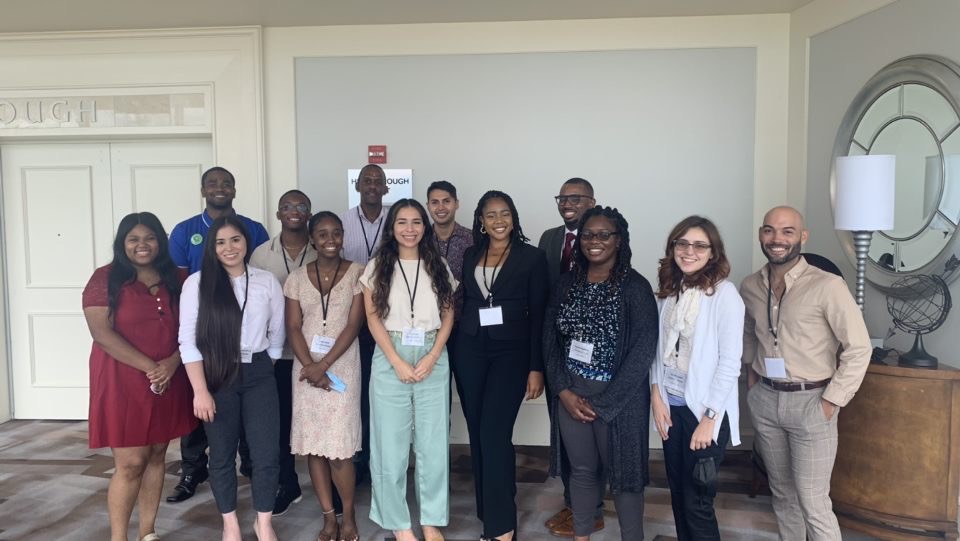
Jasmine McKenzie
Human-Centered Computing
5th-year PhD student at the University of Florida studying HCC.
About Me
Who I Am
I am a Ph.D. student in Human-Centered Computing at the University of Florida, focusing on inclusive technology and health literacy. My work is driven by a passion for creating meaningful change by addressing the needs of underserved communities. My research focuses on advancing health equity through culturally relevant, technology-based health literacy interventions for the Black community. Grounded in public health and health education frameworks, I emphasize the importance of community-specific approaches—such as stakeholder involvement, trust-building, and tailored learning styles—before developing interventions. I am currently working on using embodied conversational agents (ECAs) for patient-centered care in order to educate the Black community on chronic health issues that disproportionally affect them. By leveraging virtual agents, I hope to foster trust and foundational knowledge, which are both essential for achieving long-term health equity in marginalized communities.
Soft Skills
Team Leadership
Communication
Project Management
Problem Solving
Time Management
Data Analysis
900+
Students Taught
12
Students Mentored
5
Published Papers
2+
Years Teaching
Professional Experience
Research Assistant
May 2022–Present
Computing for Social Good Lab, Gainesville, FL
Project: Exploring the Interdisciplinary Design Approaches to Technological Health Literacy Interventions
- Conducted a comprehensive review of technological interventions aimed at improving health literacy, resulting in a paper analyzing the success and backing of the interventions and end-user involvement.
- Identified the need for community-specific measures such as determining community needs, involving stakeholders, building trust, and understanding learning styles before creating health literacy interventions for the black community.
- Discovered that conversational agents and mobile apps were popular intervention methods in the studies reviewed, with potential for use in the black community.
Visiting Researcher
May 2023-July 2023
Pacific Northwest National Laboratory, Richland, WA
Project: Trust in Generative Language Models Literature Review Paper
- Surveyed common trust violations between Human-AI teams, specifically when using generative language models in
the workplace. - Examined the techniques used to mitigate and restore trust to improve reliance on generative language models in
Human-AI teams.
Project: The Effect of Expert Explanation on the Ability to Predict Machine Learning Performance
- Designed a within-subjects study focused on evaluating the effects of expert derived confidence scores and expert
derived verbal explanations on people’s overall understanding of a ML classifier’s performance. - Developed a survey to determine if expert derived verbal explanations were more effective at helping electrical grid
operators predict the classifiers performance than expert derived confidence scores.
GEM PhD Intern
May 2021-July 2021
Pacific Northwest National Laboratory, Richland, WA
Project: Cybersecurity Threats in Implantable Medical Devices
- Surveyed cybersecurity threats and vulnerabilities in medical institutions and implantable medical devices, providing insights
for risk reduction. - Developed a plan for reducing the risk of cyberattacks in healthcare, requiring collaboration across multiple stakeholders.
- Investigated the impact of basic cybersecurity education and training on healthcare workers’ ability to detect potential
cybersecurity risks. - Contributed to the creation of a safer and more secure healthcare environment through the understanding of cybersecurity
risks and the development of mitigation strategies.
Teaching Assistant
August 2025-Present
University of Florida, Gainesville, FL
Course: Senior Design Project
- Guiding 230+ undergraduate computer science majors across 48 groups through their senior design project.
- Co-leading class discussions on group collaboration amongst CS teams, opportunities beyond the Bachelor’s degree, and the basics of CS research.
- Designing grading rubrics for 8 assignments.
Lead Instructor
June 2025-August 2025
Computing Research Association (CRA)
Course: Pre-Research Experience Course (Pre-REC)
- Co-led this course with 400+ students teaching them the basics of research to help them through their first research experiences.
- Helped guide these students on various research-based and non research-based academic opportunities and careers post Bachelor’s degree.
Teaching Excellence Academy Training
July 2025 – August 2025
University of Florida, Gainesville, FL
- Guiding 230+ undergraduate computer science majors across 48 groups through their senior design project.
- Co-leading class discussions on group collaboration amongst CS teams, opportunities beyond the Bachelor’s degree, and the basics of CS research.
- Designing grading rubrics for 8 assignments.
Graduate Research Mentor
August 2024–Present
University of Florida, Gainesville, FL
Computing for Social Good Lab
Completed the TEA training designed to help faculty adapt and use time-saving teaching strategies to help focus and invigorate their teaching practice.
- See badge in Honors and Awards Section
Graduate Research Consultant
January 2025–May 2025
Claflin University, Orangeburg, SC
- Partnered with Claflin University computer science department faculty members to mentor undergraduate students.
- Managed 4 undergraduate students across 2 research projects.
- Mentored undergraduate students on computer science research methodologies.
Lead Teaching Assistant
January 2022–December 2024
University of Florida, Gainesville, FL
Courses: Programming Fundamentals I and II
- Administered exams to students, graded assignments, and managed study sessions in Programming I and II courses.
- Assisted professor in co-teaching introductory C++, Python, and Java to 900+ undergraduate students.
- Managed 42 undergraduate Peer Mentors.
BICE Paper Reviewer
July 2025
Black Issues in Computing Education Symposium 2025
- Reviewed and offered feedback on papers submitted to this conference.
HBCU Application Guide
June 2023 – Present
Anniston High School, Anniston, AL
- Teaches socially disadvantaged high school juniors and seniors about the college application process.
- Assists students with obtaining academic scholarships.
- 50 participants have received college acceptance and 23 have received academic scholarships to HBCUs.
HWCOE Spring Visit
February 2022
University of Florida, Gainesville, FL
- Assisted 20 students on a Spring Visit tour by doing campus walking tour guides and housing/apartment tours.
- Lead a PhD recruit lab tour for the Computing for Social Good Lab.
Ph.D.? Why Not Me” Panelist
February 2022
Claflin University & Benedict College, Orangeburg, SC
- Served on a panel to discuss why minority students should consider attending graduate school, specifically for Ph.D. programs.
- Spoke to 75 junior and senior Computer Science students about graduate school life, how to apply to Ph.D. programs, when to
begin preparing, and how to find and apply for fellowships.
Research Interests
Consumer Health Informatics
Exploring digital solutions to improve health literacy and access to healthcare information.
Computer Science Education
Advancing computer science departments at HBCUs and PBIs by encouraging new electives, minors, and majors.
AI Ethics
Focused on explain AI ethics to users, studying AI usage patterns, and exploring ethical methods for utilizing LLMs and other AI tools.
Publications
Morrow, N., Irving, A., McKenzie, J., Smith, A & Gilbert, J.E. (2025)
The Invisible Participants: How Computing Education Research Fails Students with Disabilities – Exemplary Award
RESPECT 2025, ACM, https://doi.org/10.1145/3704637.3734739
Thomas, S.V., McKenzie, J., Smith, A., Gilbert, J.E. (2025)
User-Centered Design for Career and Academic Motivation in Student-Athletes
Learning and Collaboration Technologies, HCII 2025. Springer, https://doi.org/10.1007/978-3-031-93564-0_11
Gilbert, J.E., McKenzie, J., Smith, A., Jennings, J., & Hart, A. (2024)
Two-Step Ballot Verification: Mitigating the Impact of the Hawthorne Effect on Vote-Flipping Studies
Human Factors and Ergonomics Society (HFES) Annual Meeting, https://doi.org/10.1177/10711813241279792
McNamara, K., Hart, A.B., Morrow, N., McKenzie, J., Gilbert, J.E. (2024)
Plain Language to Address Dimensionality in Feature-Contribution Explanations for End-Users
HCI International 2024 Posters, HCII 2024. Springer. https://doi.org/10.1007/978-3-031-62110-9_21
Gilbert, J.E., McKenzie, J., Smith, A., & Thompson, L. (2023).
Evaluating New Technology for Equitable and Secure Voter Verification
Tech Policy Press, Technology and Democracy. Article Link
Education & Honors
Education
Ph.D. in Human-Centered Computing
2021 – Present
University of Florida, Gainesville, FL
Advisor: Dr. Juan E. Gilbert
B.S. in Computer Science
2017 – 2021
Claflin University, Orangeburg, SC
Minor: Psychology — GPA: 3.89
High School Diploma
2013 – 2017
Anniston High School, Anniston, AL
GPA: 4.2
Honors & Awards
UR2PhD Graduate Student Mentor Training
Computing Research Association, 2025
Certificate to celebrate my commitment to mentoring researchers in the field of computing.
Teaching Excellence Academy
University of Florida, 2025
Currently completing the TEA designed to help faculty adapt and use time-saving teaching strategies to help focus and invigorate their teaching practice.
Great Teaching for New Faculty Certificate
University of Florida, 2025
Currently completing a training course to equips new faculty with resources, instructional strategies and advice to create a great learning experience for students.
Gallery

Black Women in Tech Convening
A group of 36 researchers convened in support of a NSF Project aimed at establishing a research agenda on black women and girls in computing

Howard University Research Day
Computing for Social Good Lab and UF staff gather at Howard University to demo new tech and recruit undergrads.

Edward A. Bouchet Forum 2024
University of Florida graduate students attend the Edward A. Bouchet Fall Forum at Howard University.

McKnight Fellowship Conference
McKnight Fellowship recipients gather for a photo at the 2021 conference.

Networking in DC
Jasmine attends a networking lunch in DC.

New Students
Computing for Social Good Lab welcomes new students.
Get In Touch
Contact
jasminemckenzie@ufl.edu